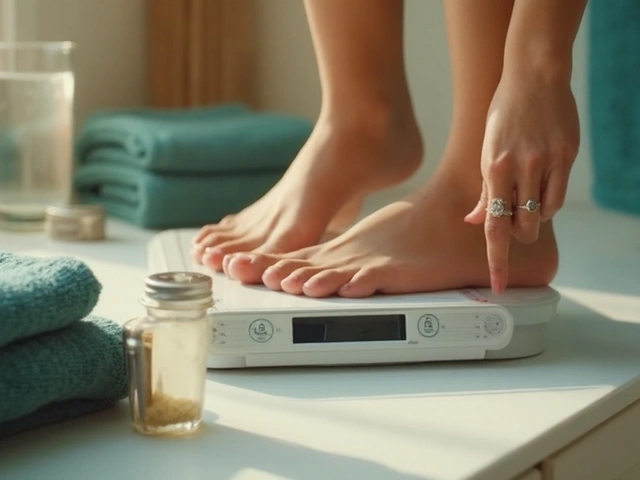Skipping a pill because you’re in a rush, forgetting because you’re tired, or stopping because you feel better-these seem like small choices. But when it comes to prescription medication, they can be life-altering. Your body doesn’t work on a wish list. It works on chemistry. And that chemistry depends on timing-not just taking the drug, but taking it at the right time, every time.
Why Timing Matters More Than You Think
Think of your bloodstream like a highway. Medications are cars driving through it. If you skip a dose, that car disappears. The road gets empty. Then, when you finally take the next pill, it’s like slamming a truck onto an empty highway-too much, too fast. This rollercoaster of drug levels is dangerous. It doesn’t just reduce effectiveness. It can make your condition worse. For antibiotics, skipping doses doesn’t just mean you might not feel better. It means bacteria survive, adapt, and become stronger. The CDC warns that incomplete antibiotic courses are one of the biggest drivers of antibiotic resistance. That’s not science fiction. It’s why some infections now don’t respond to drugs that worked 20 years ago. For blood pressure meds, skipping even one dose can spike your pressure. High blood pressure doesn’t scream. It whispers-until it causes a stroke or heart attack. The American Heart Association says nearly half of U.S. adults have high blood pressure. And a huge chunk of them stop taking their meds when they feel fine. But here’s the catch: if you feel fine, that’s because the medicine is working. Anticoagulants like warfarin are even more precise. Your INR level (a blood test that measures clotting time) needs to stay in a narrow range. Too high, and you bleed. Too low, and you clot. One missed dose can throw that balance off. And it doesn’t take days to go wrong-it can happen in hours.What Happens When You Skip a Dose
The consequences aren’t abstract. They’re real, and they show up in ER visits, hospital stays, and premature deaths. - Diabetes meds: Skipping insulin or metformin can send blood sugar crashing or soaring. Hypoglycemia can cause seizures. Hyperglycemia can lead to diabetic ketoacidosis. Both can kill. - Heart failure drugs: Diuretics, beta-blockers, ACE inhibitors-all need steady levels. Miss a dose, and fluid builds up. Breathing gets harder. Hospitalization follows. - Immunosuppressants: After a transplant, your body tries to reject the new organ. These drugs suppress that response. Skip one dose, and rejection can start within days. - Seizure meds: Even a single missed dose can trigger a seizure in someone who’s been seizure-free for months. The Public Health Reports study from 2012 found that non-adherence contributes to 125,000 deaths in the U.S. every year. That’s more than traffic accidents. And most of those deaths are preventable.Why People Skip-And How to Fix It
People don’t skip doses because they’re careless. They skip because it’s hard. - Forgetfulness: Life gets busy. Kids, jobs, errands-meds fall off the radar. - Confusion: Five pills in the morning, three at night, one with food, one on an empty stomach. It’s a maze. - Side effects: Nausea, dizziness, fatigue-people think it’s the medicine, not the condition, making them feel bad. - Cost: A $500 monthly pill is impossible for many, even with insurance. - Misunderstanding: “I feel better, so I don’t need it anymore.” This is the most common reason. The fix isn’t just willpower. It’s systems. - Use a pill organizer. Weekly boxes with AM/PM slots cut confusion. Many pharmacies give them out free. - Set phone alarms. Label them: “Amoxicillin,” “Insulin,” “Warfarin.” Don’t just say “Meds.” - Link meds to habits. Take your pill right after brushing your teeth, or with your morning coffee. Your brain learns routines faster than alarms. - Ask your pharmacist for a medication review. They can simplify regimens-combine pills, suggest once-daily options, or flag interactions. - Use the “teach-back” method. When your doctor explains your meds, repeat it back. “So I take this at 8 a.m. with water, not food, right?” If you can’t say it clearly, you won’t remember it.The Role of Your Pharmacist
Your pharmacist isn’t just the person who hands you the bottle. They’re your medication coach. Pharmacists are trained to spot timing conflicts. They know that taking a blood pressure pill with grapefruit juice can be deadly. They know that some antibiotics must be taken two hours before or after calcium supplements. They know that if you’re on five different meds, you’re 16% less likely to take them all correctly-according to a 2002 study in the Annals of Internal Medicine. Many pharmacies now offer free Medication Therapy Management (MTM). That’s a 20-30 minute session where a pharmacist sits with you, reviews every pill you take (including vitamins and OTCs), and builds a simple schedule. They’ll even call your doctor to suggest changes if your regimen is too complex. In the U.S., Medicare Part D plans are required to offer MTM to high-risk patients. Ask your pharmacist if you qualify. You don’t need to be sick to get help-you just need to be taking multiple prescriptions.What to Do If You Miss a Dose
Sometimes, you forget. That’s human. But what you do next matters. Don’t double up. That’s dangerous. - For most meds: If you remember within a few hours of the missed time, take it. If it’s almost time for the next dose, skip the missed one. Resume your normal schedule. - For antibiotics: Take it as soon as you remember, even if it’s close to the next dose. Don’t skip the full course. - For insulin or diabetes meds: Call your doctor. Never guess. Blood sugar mistakes can be fatal. - For blood thinners like warfarin: Call your provider. They may need to check your INR. Keep a log. Write down when you miss a dose. That way, when you see your doctor, you can show patterns-not just say, “I forget sometimes.”
It’s Not Just About Pills
Timing isn’t just about hours. It’s about food, sleep, and lifestyle. - Some meds work better on an empty stomach. Others need food to be absorbed-or to avoid nausea. - Taking a sedative at 8 a.m. instead of 10 p.m. can wreck your day. - Alcohol can interact with painkillers, antidepressants, and even some heart meds. Always read the label. Not the tiny print on the bottle-the full instructions on the pharmacy sheet. If it says “take with food,” don’t take it with coffee. If it says “take at bedtime,” don’t take it at lunch. The FDA requires standardized wording on prescriptions: “Take on empty stomach,” “Take with meals,” “Take at bedtime.” These aren’t suggestions. They’re science.Final Thought: Your Life Depends on It
Medications aren’t candy. They’re tools that keep your body functioning. Skipping doses isn’t a minor mistake. It’s like turning off the engine while driving on the highway. If you’re overwhelmed, talk to someone. Your doctor. Your pharmacist. A family member. You don’t have to figure it out alone. The goal isn’t perfection. It’s consistency. One pill, at the right time, every day. That’s how you stay out of the hospital. That’s how you live longer. That’s how you take back control.What happens if I skip a dose of my blood pressure medication?
Skipping a blood pressure pill can cause your pressure to spike suddenly, increasing your risk of stroke or heart attack. High blood pressure often has no symptoms, so you might feel fine-but your arteries are still under stress. Consistent dosing keeps pressure steady. If you miss a dose, take it as soon as you remember, unless it’s almost time for the next one. Never double up. Talk to your doctor if you miss doses often.
Why do I need to finish my antibiotics even if I feel better?
Feeling better doesn’t mean all the bacteria are gone. Stopping early lets the toughest, most resistant bugs survive. They multiply and can cause a worse infection later. That’s how antibiotic resistance starts. The CDC recommends completing the full course-usually 7 to 14 days-no matter how you feel.
Can I take my meds with food if the label says “on an empty stomach”?
No. Some medications need an empty stomach to be absorbed properly. Food can block absorption, making the drug less effective-or cause side effects like nausea. For example, thyroid meds and certain antibiotics must be taken 30 to 60 minutes before eating. Always follow the label exactly.
How can I remember to take my pills every day?
Use a pill organizer, set phone alarms with clear labels, and link your doses to daily habits like brushing your teeth or eating breakfast. Many pharmacies offer free weekly pillboxes. Pharmacists can also help simplify your regimen-reducing the number of daily doses makes adherence much easier.
Is it safe to skip doses if I can’t afford my meds?
Never skip doses because of cost. Instead, talk to your pharmacist or doctor. Many drug companies offer patient assistance programs. Pharmacies may have discount cards or generic alternatives. Medicare Part D and Medicaid can help with costs. Skipping meds can lead to hospitalization-which costs far more than your prescription.
What should I do if I’m taking too many pills?
Schedule a medication review with your pharmacist. They can check for duplicates, interactions, or unnecessary drugs. Many people take multiple meds because different doctors prescribed them without knowing the full picture. A pharmacist can often simplify your regimen-reducing daily doses by combining pills or switching to once-daily versions.
Do over-the-counter drugs and supplements count when timing my prescriptions?
Yes. Calcium supplements can block antibiotics. St. John’s Wort can interfere with antidepressants and birth control. Even aspirin can affect blood thinners. Always tell your pharmacist and doctor about every pill, vitamin, or herb you take-even if you think it’s harmless.







Conor McNamara
November 19, 2025 AT 03:09steffi walsh
November 20, 2025 AT 03:16Leilani O'Neill
November 20, 2025 AT 17:33Riohlo (Or Rio) Marie
November 22, 2025 AT 00:25Shaun Barratt
November 23, 2025 AT 17:19Iska Ede
November 24, 2025 AT 14:16Gabriella Jayne Bosticco
November 26, 2025 AT 00:05Sarah Frey
November 26, 2025 AT 15:18Katelyn Sykes
November 26, 2025 AT 20:00Holly Powell
November 27, 2025 AT 16:14Emanuel Jalba
November 28, 2025 AT 12:42Heidi R
November 29, 2025 AT 07:02